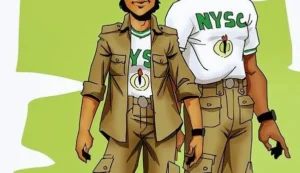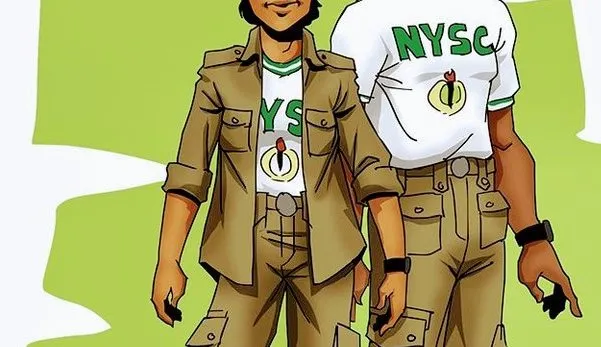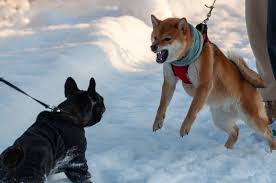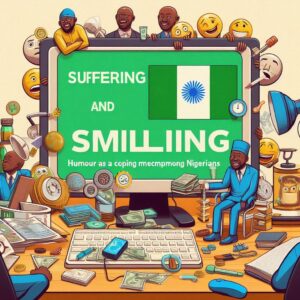
It was the last day at camp and the air of excitement was infectious. It didn’t matter if you were going to be posted to the remotest village of Gembu or Jalingo City; all we knew was that we were leaving the darned camp in a few hours. No more smelly bathrooms, no more congested rooms, and No more Whistles! Oh God! How I hated the Whistles: They rudely woke you up at 4 am for the morning parade, and forced you back into the dingy rooms at night just when the air was cool enough, and the flies had gone to sleep. Oh, did I mention the flies? They were insufferable! Thousands of them hovered and perched on everything and everyone. They said there were even more flies in hotter places like Sokoto and I wondered how that was possible.
The much-awaited posting letters were distributed after the passing-out parade. My heart sank when I opened my letter. My request for redeployment had been granted.
I felt a prickling sensation all over my body as the camp commandant gave me a stern gaze during our meeting to discuss my change in posting. You see, I had made an unusual request for redeployment. I did not have any underlying health issues that would warrant a transfer, nor was I married, which could have been a valid reason for being relocated. So, there was really no legitimate basis for requesting a redeployment. Despite several disputes, the camp commandant somehow managed to make a case for my redeployment. And now, here I was, expressing my desire to stay and no longer wanting to be relocated.
‘Do you think this is a playground where you can change groups as you please?’ He barked at me.
‘No, sir’ I quickly replied, shaking my head.
‘What nonsense’ he snarled under his breath and walked away from me.
I was left standing in my oversized khaki uniform feeling miserable, unsure of what to do next. A few bystanders approached me, asking what I had said to the commandant that had made him so angry. Ignoring their questions, I proceeded to the camp market to find Clinton. I needed to tell him the truth in hopes that it would lighten the heavy weight in my heart.
I had met Clinton on the first day I arrived at the camp. I endured standing in never-ending queues for over six hours. They informed us that our bags needed to be searched, so there was a line at the gate for that. Afterward, we had to go through registration and be assigned to platoons, requiring us to queue once again. Then, we had to collect our dress kits and uniforms, which meant joining another queue. Finally, we had to collect mattresses and be assigned a bed space, where, unsurprisingly, there was another queue. Oh, did I mention there were over 4,000 people at the camp? Shockingly, each queue had only two officials to manage the crowds. By the time I was assigned a bed space, my legs were numb. All I desired was to wash my hot, sticky body and rest my tired eyes. However, it was nearly dark when I finally located the tap behind the hostel, and I was devastated to find yet another queue. I couldn’t bear it any longer and turned back, ready to leave, when I ran into a fellow exhausted girl I had befriended earlier. ‘You want to fetch water, shey?’ She asked.
I simply nodded, as I was even too tired to talk. I felt dehydrated and wished I had heeded my mum’s advice to carry a water bottle.
‘Let us go to the boys’ hostel, they have many taps and there are no queues,’ she said excitedly.
‘I hope it’s not far o, I don’t have any strength left.’
‘Let’s just go; night is coming.’
Then we walked to the boys’ hostel. It was quite a distance away but true to her words, there were no queues and the taps seemed to rush faster with a higher pressure. I fetched my two big buckets for that night and the next morning.
When it was time to go, I realized how heavy my buckets were and how tired I was. My friend had her bucket comfortably balanced on her head and still managed to walk her usual catwalk. She suggested I do the same, but I could not be as graceful as she was. I spilled so much water on myself that I had to stop after a few steps.
‘Toh what do you want us to do now? I am already carrying one of your buckets for you. Manage to carry that one’ she scolded.
I carried the bucket in one hand and walked silently behind her. I stopped after a few steps to rub my palms and switch hands. It was during one of my breaks that I saw Clinton. He walked towards me and offered to carry my bucket. I knew it was not just a kind gesture. I would have to pay him later. I quickly agreed and called out to my friend, who was ahead of me. He walked ahead and relieved her of the bucket she had in one hand.
‘Shey, you know you will pay’ she scowled at me.
‘I don’t mind jare’ I said excitedly.
We got to the hostel, and I paid Clinton. He told us he was available for any work we wanted him to do, and I quickly took his phone number.
The next night, I tried to call Clinton, but his phone was switched off. I waited to call him back, but it was still switched off. The queue at the girls’ tap was even worse as more girls had come to camp that day.
‘You better come, let’s go and fetch water before lights out’ My friend warned.
I did not have a choice but to carry my two big buckets and follow her again.
‘I hope we see Clinton again,’ I said.
‘Is like you came to camp with loads of cash.’
‘It’s not that expensive, naw; 50 bucks for a bucket of water is fair enough.’
‘Na you sabi’
Clinton was there at the tap when we got there. But he was fetching water for someone else and could not help me. He called a little boy who was standing nearby to help us. He looked like a miniature Imam gabbed in a dirty brown kaftan and bare-footed. He had eyes that seemed to look through your soul. His hair was curly brown, which made me wonder if he was Fulani or just malnourished.
‘He’s too small naw’ , I complained.
‘Don’t worry, he can carry the buckets,’ Clinton assured us and left.
When the buckets were full, my friend carried hers on her head as usual and I was left with my two big buckets. The little boy came forward and motioned to me to balance one of my buckets on his head. I shook my head. He looked like he weighed less than the bucket. He gave a toothy grin and motioned again to have the bucket on his head.
‘Putam for hin head, dis hausa boys dey strong wella’ one of the boys at the tap said.
We both lifted the bucket and balanced it on his head. He then held the second bucket in his hand. I was worried he would collapse under the weight, but to my surprise, he began moving slowly and steadily.
While I walked empty-handed, a small boy, who could not have been older than 8, carried both of my buckets, which likely weighed more than he did. I felt guilty and went to take one of the buckets from his hand. He looked puzzled when I did, but he continued his slow, steady steps. Seeing him confidently take small strides with the big bucket on his head made me forget about the weight. I didn’t stop to rub my palms or switch hands. Instead, I thought about the cruel life that forced a young child to be awake at nearly 10 p.m. carrying a bucket of water to make a living. He spilled so much water along the way that the bucket was only half-full when we reached the hostel. By this point, I felt incredibly guilty and ashamed for making him carry my bucket. When I gave him 50 naira from my pocket, I saw his eyes light up. I knew it was not enough, but I had no more money on me. I searched through my waist pouch and found some chocomilo. I gave him all four pieces I had left. He was ecstatic and flashed his toothy grin once again.
‘What is your name’ I asked.
‘Ba Turanci’ he replied and gave an even toothier grin.
‘That means he doesn’t speak English’ my friend explained.
‘Mai Sunan ka?’ She asked.
‘Sani’ He replied and started to walk away.
‘Wait’ I called out and he turned with a quizzical expression on his face.
Then I realized I had nothing to say to him. I waved and he waved back.
‘God, I feel so guilty’ I told my friend as I turned to face her.
‘Didn’t you pay him?’ she asked.
‘Yes, but he is so small. It feels like child labour’ I whined.
‘He may not be that young o; some people just have baby faces.’
I knew Sani was not an older person trapped in a child’s body, as my friend suggested. He was actually just a child who had been forced to become an adult. I wondered who his parents were and why they allowed him to wander about so late. I resolved to ask Clinton about it the next day.
For the next 5 days, I did not come across Clinton or Sani. The phone number he gave me was useless because it was always switched off. While trying to avoid the compulsory camp lectures, I bumped into Sani. He was still wearing his brown Kaftan and hawking pure water in sachets. When I called him, he did not seem to recognize me. I wanted to ask him whose water he was hawking and why he was not standing under the tree like the other hawkers. Remembering that he did not speak English, I waved at him instead, and he waved back. Recalling that I had some chocomilo in my waist pouch, I gave them to him. It was then that I knew he recognized me because he grinned and waved even more.
The next day at the camp clinic while I was dispensing drugs, I saw a small hand waving at me through the window.
‘Likita’ he called out with his toothy grin.
His small teeth were stained and very uniform. It reminded me of Lenny the shark. He still had a bucket of pure water sachets for sale on his head. I smiled and waved back. He said some other things in Hausa that I didn’t understand. I smiled, nodded, and waved some more. I gave him some chocomilo, which he eagerly collected. He smiled and left. He still had on his brown kaftan.
I saw Clinton that evening at the boys’ tap. He was in a hurry again because he was on an errand for someone. I told him I would wait for him to finish his errands. I wanted him to tell me about Sani. I waited for an hour before he returned. He carried my buckets and started galloping towards my hostel.
‘Slow down naw, where you dey hurry go sef?’ I called out.
‘You won’t understand, Aunty Corper’ he shouted back at me.
I was disappointed I did not get to ask all my questions.
Our time at the camp was coming to an end. I found myself in the camp clinic two days before our departure when Sani entered. His eyes were red and he had a fever, along with a persistent cough. I knew it was serious because he wore no smile. I suspected he had malaria, a common ailment among all of us, despite claims from the officials that the camp had been fumigated. I was about to prepare some medication for him, but my colleague stopped me.
“You should get a prescription for him. How will you justify giving him medication without one?” he said.
I took Sani by the hand and led him to the Doctors’ consulting room to obtain a prescription. Just as he was about to sit down, a whistle blew, signaling the start of parade rehearsals. The coordinator of the camp clinic entered and became furious upon seeing Sani in the consulting room.
‘You mean you’ve been treating street urchins with the camp supplies?’
‘No ma’ the Doctor and I replied in Unison.
‘No wonder the drugs are always out of stock,’ she continued.
‘Before I open my eyes, you’ve taken this thing out of the clinic.’
‘You, she pointed at me, write down your camp code and give it to me.’
I figured I was in trouble. Asking for my camp code spelled trouble.
I quickly shooed Sani out of the clinic and proceeded to explain to the camp coordinator that it was the first time I had brought a ‘street urchin’ into the clinic.
‘I want a stock of all the available drugs and the prescriptions that have been prescribed so far.’
‘Yes ma’
‘Submit it to my office first thing tomorrow morning.’
I was afraid of any negative attention that could jeopardize my chance for redeployment. I submitted the list to her office before 8 am and waited to apologize once more. I assured her that I wouldn’t distribute medications to non-camp members again. She wasn’t as angry anymore and let me off the hook.
In my panic and fear, I completely forgot about Sani’s health condition. The next night was the bonfire night before our passing-out parade the next day. The entire camp was buzzing with excitement. There was food, drinks, and music, and no rules or whistles to restrain us. We would be leaving the next day, so I indulged myself in eating, dancing, and drinking. Eventually, the cold got to me and I wanted to retreat to bed. After saying my goodbyes, I made my way to the hostel. To reach the hostel, I had to pass through the camp market. It was during this journey that I noticed Clinton. He was sitting alone in an empty stall, lost in his thoughts.
“Clinton!” I called out, waving at him. But he did not wave back. I was taken aback and wondered why he snubbed me. Initially, I thought about ignoring him and continuing on my way, but then I remembered Sani. So, I approached him to inquire about Sani.
‘He died last night,’ he replied quietly. The way he said it sent shivers down my spine. I felt both numb and dumb at the same time, utterly disoriented. After what felt like an eternity, I entered the market stall and sat down, bracing myself to hear my worst nightmare. Sani was the lone survivor of a vicious attack by Boko Haram a few months ago. He had been with his father, tending to the cows, when the attack happened. A bullet had grazed his ear, impairing his hearing. He had wandered through various villages, surviving on the kindness of strangers. It was during this time that he met Clinton, another street kid, who told him about the camp. Overwhelmed with grief and guilt, I could not help but wonder if a simple tablet of paracetamol could have alleviated his fever. I had plenty of paracetamol on hand. If only I had cared more, if only I had not been so fixated on getting redeployed. Clinton had no idea that I even worked in the camp clinic, let alone that Sani had come to find me. I could not bring myself to tell him or anyone else. This guilt was mine to bear.
I could not sleep that night. I cried and blamed myself for Sani’s death. After some time, I shifted the blame to the terrorists who had forced him out of his homeland. Then I blamed the government for failing to protect its citizens. I also blamed the clinic coordinator for not allowing me to treat Sani. Next, I held God responsible for allowing such tragedy to occur, but eventually, the blame returned to me. I had failed Sani and, in a broader sense, humanity. By morning, my eyes were red and puffy from crying. As I took a shower, I made up my mind to make amends by staying behind and not seeking redeployment. I had a vague idea of starting a program for street kids like Sani and Clinton, although I had not fully worked out the details. I simply wanted to remain where I was. Alas, fate had other plans, and I was redeployed, carrying my guilty conscience with me.





Life is a mystery
Indeed it is 🙂
Your ability to narrate experiences vividly is admirable. Pondering your camp experience inspired deep reflection, and strengthens my values for empowering vulnerable people.
Thank you for your kind comment, and I`m very glad to hear you are inspired by the story 🙂
Nigeria happened to Sani.
Hmmm…Abin bakin ciki ne